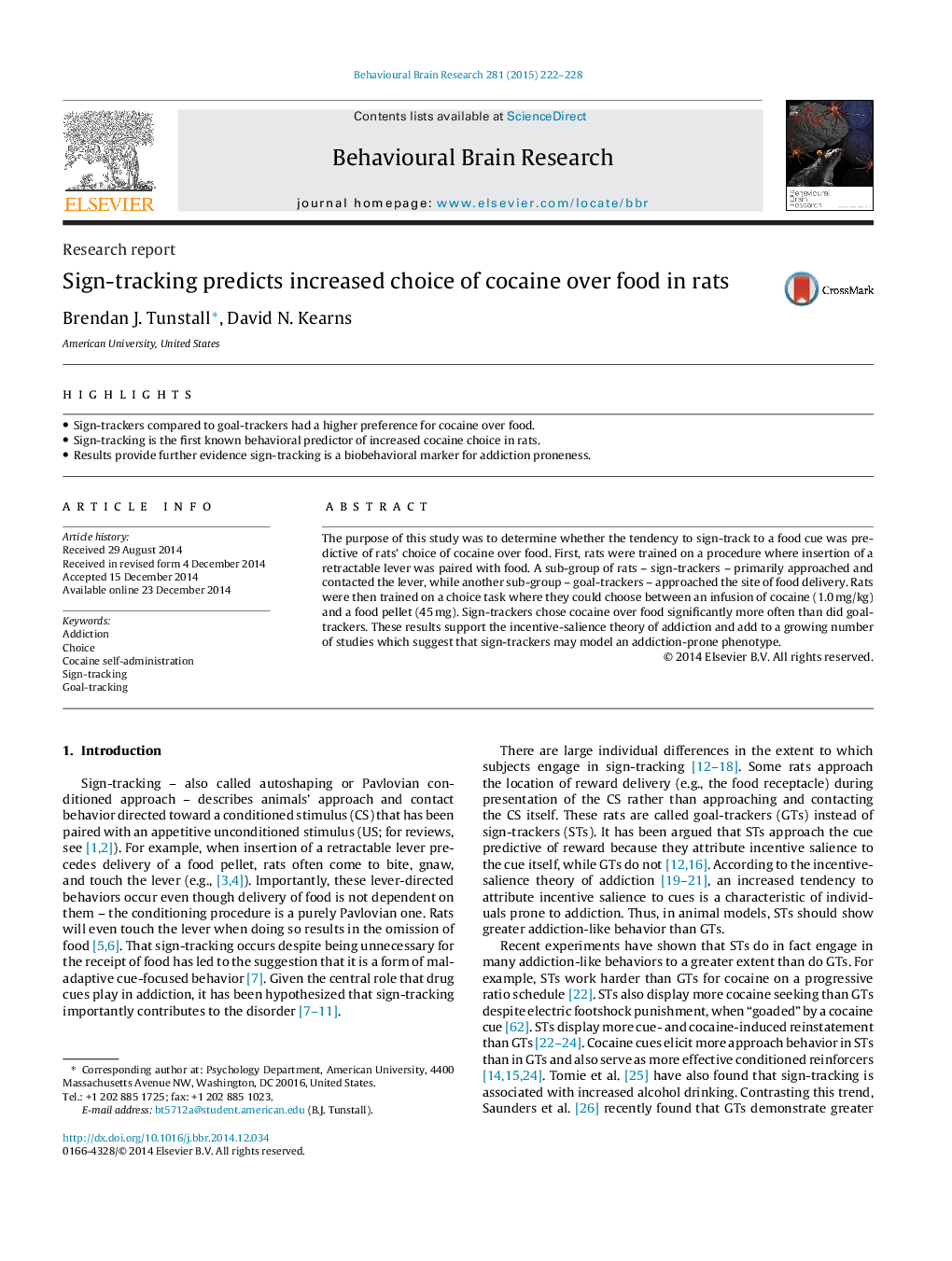| Article ID | Journal | Published Year | Pages | File Type |
|---|---|---|---|---|
| 6257004 | Behavioural Brain Research | 2015 | 7 Pages |
â¢Sign-trackers compared to goal-trackers had a higher preference for cocaine over food.â¢Sign-tracking is the first known behavioral predictor of increased cocaine choice in rats.â¢Results provide further evidence sign-tracking is a biobehavioral marker for addiction proneness.
The purpose of this study was to determine whether the tendency to sign-track to a food cue was predictive of rats' choice of cocaine over food. First, rats were trained on a procedure where insertion of a retractable lever was paired with food. A sub-group of rats - sign-trackers - primarily approached and contacted the lever, while another sub-group - goal-trackers - approached the site of food delivery. Rats were then trained on a choice task where they could choose between an infusion of cocaine (1.0Â mg/kg) and a food pellet (45Â mg). Sign-trackers chose cocaine over food significantly more often than did goal-trackers. These results support the incentive-salience theory of addiction and add to a growing number of studies which suggest that sign-trackers may model an addiction-prone phenotype.
